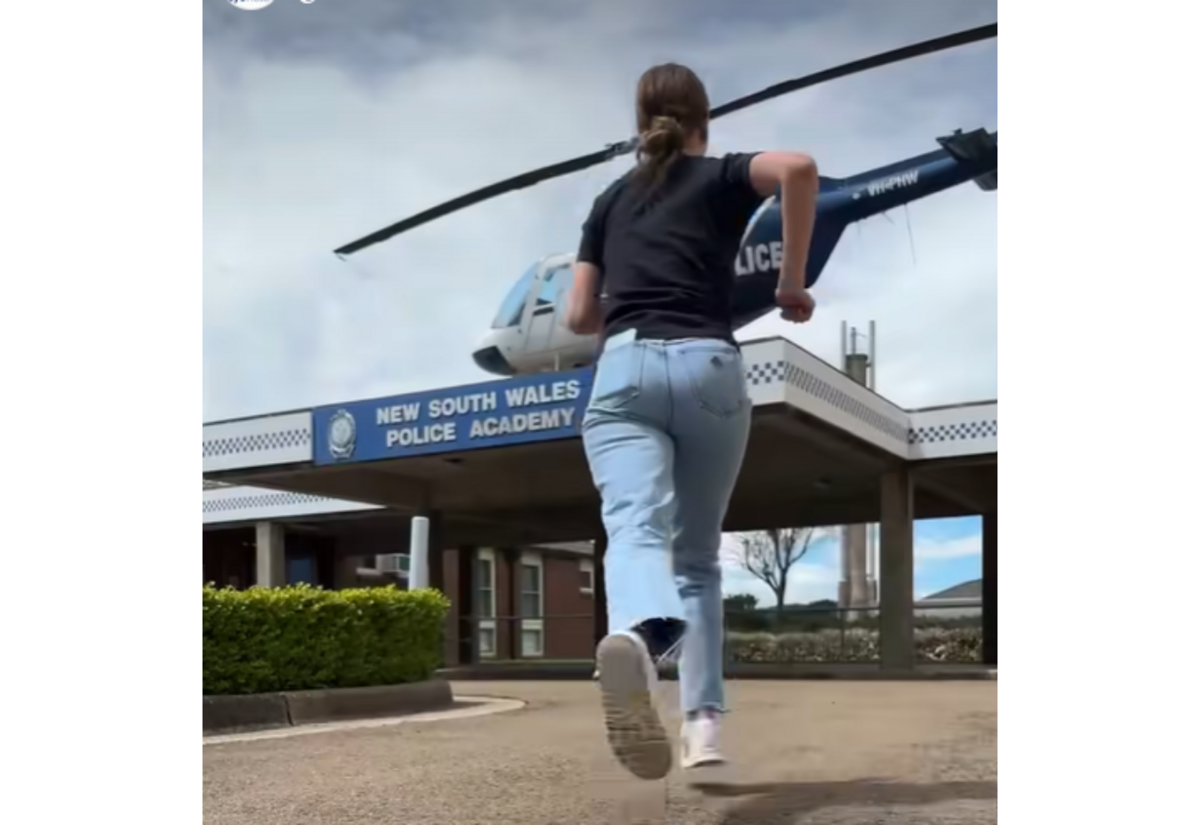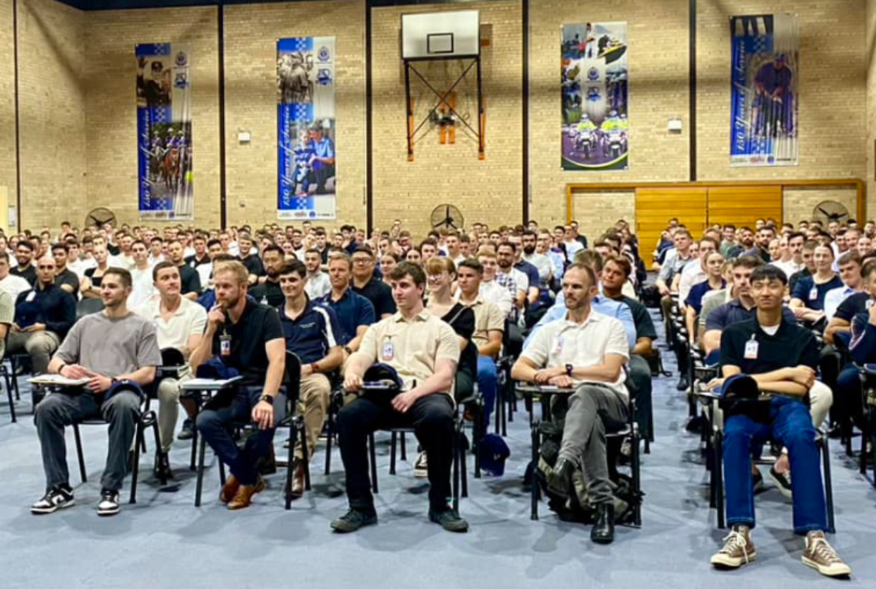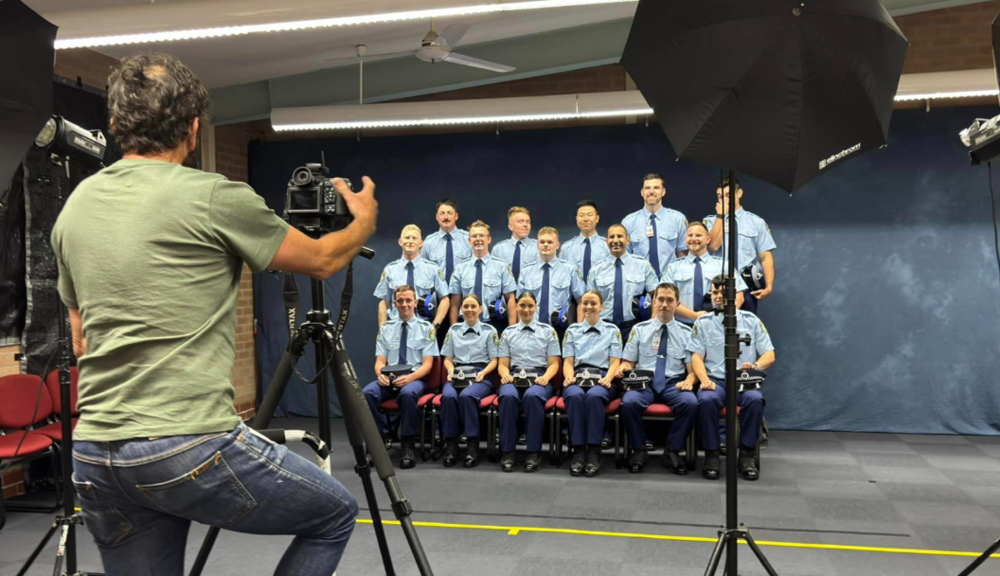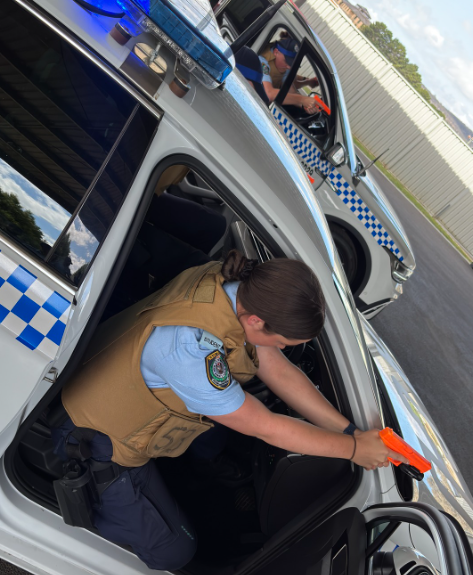Join the Richmond Police District and help our police force grow.
Lara Leahy
22 November 2024, 10:01 PM
 (Image Credit: NSW Police Force Facebook Page)
(Image Credit: NSW Police Force Facebook Page)The police force is an important part of our community, and recently, there have been some changes to support new officers in the area.
Susie Johnston, acting Superintendent of the Richmond Police District, gave an update on the latest information and how, if you feel the inclination, you can join the Police Force.
To be a police officer is often a dream from childhood. The cars, the uniforms, the guns - it all seems like a great way to spend time. As you get older, that changes.
Supt Johnston has seen the motivation of many new recruits in her time as an officer, “Most people who join the police do it because they want to help people. There can be highs and lows, and occasionally, it's quite sad to do.”
The hard moments are the toughest, but as Supt Johnston puts it, “My view is, as a police officer, if we can make somebody's life in the community, on the very worst day of their life, slightly more bearable, then we've done a good job.”
Over the years, Supt Johnston has worked in a few different regions and has been with the Richmond Police District (RPD) for 10 years.
“The good thing about RPD is having worked in a number of commands myself, this command exposes you to a range of experiences. You really do not know from one day to the next what you're going to encounter. It is very diverse, so you're never going to be bored in RPD.”
Current Regional Recruitment Campaigns, including the RPD means that if you want to become a police officer, you can do that knowing that after training, you will be posted in your hometown.
“We're lucky enough that Richmond is one of the target areas, and that's because we know that becoming a police officer and moving away from the home can be a big ask for family. If you've got kids in school or have partners that have established local businesses and those types of things, it is hard to get moved away.
“This new incentive gives people who want to apply a high level of confidence that they know where they're going to be stationed to work when they complete their training.”
The Richmond Police Department has main bases in Lismore, Ballina and Casino but covers the region from Tabulam to Evans Head.
The police station in Lismore has begun to offer work experience to students. “In 2024, we've just started kicking off work experience students for Year 10, 11, or 12 students. We've had children from schools like Woodlawn and St Mary's.
“A number of different schools whose students want to do their work experience will attend the station. We've got four students coming in December.”
This option is obvious for school leavers, but there are no age restrictions for people wanting to join the Force. You just need to pass the two training sessions - if you pass the first, you progress to the second.
The first consists of your application and identity check, a physical test, psychometric testing, medical assessment and an interview. You need to pass your University Certificate in Workforce Essentials (was $1800, now $700).
The physical test was the Bronze Medallion, but now it is called the Aquatic Rescue Sequence Instruction and Certificate.

There is a suitability assessment, which is done online, and a field placement, which is like work experience - you go into the field to assess whether it’s for you or not.
If you pass session one, you get an invitation to the NSW Police Academy in Goulburn for Session 2. The training takes 16 weeks, and as of this year, you will be paid to do the Session 2 training. On an initial check, this is $1360 per week plus superannuation and allowances.
At graduation, “All the commanders go to the attestation parade, where you march at the parade ground.”

Supt Johnston explains, “You're a probationary constable for a year. You still do some study and some assessments when you're in that year.
“After a year, you get what we call your first hook or your first stripe, and you become a constable. Once you're a constable, you can start looking at where you would like your career to progress.
“Some people might come into the police with skills. If you’ve done a law degree beforehand, a prosecutor might be interesting. I came in with an existing university degree, Information Science, or research and so I naturally went into crime and into a crime analyst role.”
RPD has many specialist roles. They can be applied for if and when an officer is willing.
“You start general duties to get your grounding. Some police stay in general duties, where they respond to calls for service for their whole career. Other police go into, say, prosecutions, where you represent the New South Wales Police in court.
“Other police go into forensics, where you're looking at crime scenes and taking fingerprints and all of those types of things.
“Some police go into intelligence, that's a field that I went into, which is analysing crime.
“Other police are detectives and specialise in more serious investigations. We focus on fatal car crashes because obviously, there's obviously scientific and mathematical stuff about that type of thing.
“You can go into youth liaison if you want to help youth. You can go into crime prevention if you want to look at how you're going to prevent crime. You can go into domestic violence.
“Highway Patrol - lots of people join that. They specifically target traffic and road safety.”

The options don’t stop in the RPD. “Some of those specialist roles may require that you go to Sydney. If you wanted to be part of the Raptor Squad - they target outlaw motorcycle gangs.
“That particular unit come up here to assist the RPD but mainly they're based out of Sydney.
“The mounted police are a dedicated Sydney option.”
In recent years, concern for police wellbeing has been highlighted.
“Some units require regular physical and psychometric tests, say if you're in the Police Rescue squad. The same with other high-risk units, those dealing with child abuse, negotiators and the Tactical Operations Response unit.
“One of the good things that they've implemented in the last couple of years is now we've got trained health clinicians that actually work in the police stations that you can go and talk to if you've been to something that upsets you.”
The mental health workers can be deployed to areas as necessary in response to difficult situations.
Supt Johnston has found being a part of the police to be a rewarding experience and would recommend anyone who is curious to look into it further.
More information on applying to become a police officer an be found here.
The details of the UCWE training can be found here.
HEALTHCARE PRACTITIONERS
DENTISTS/DENTURES

